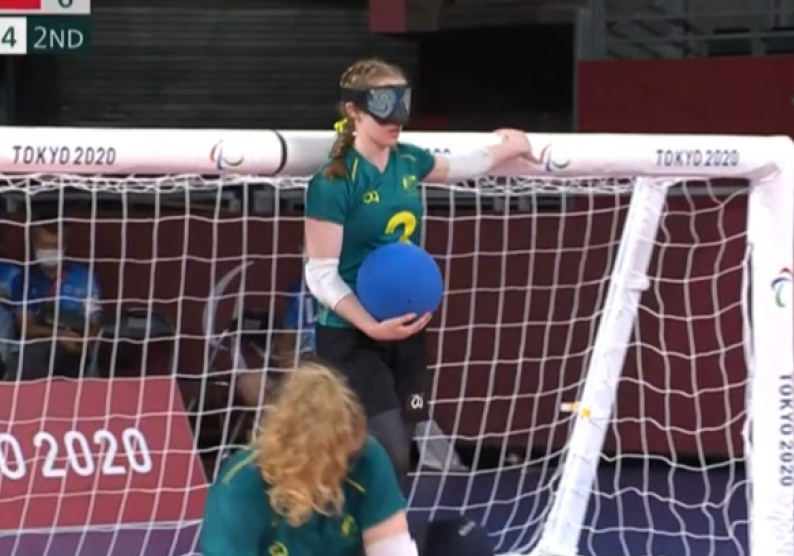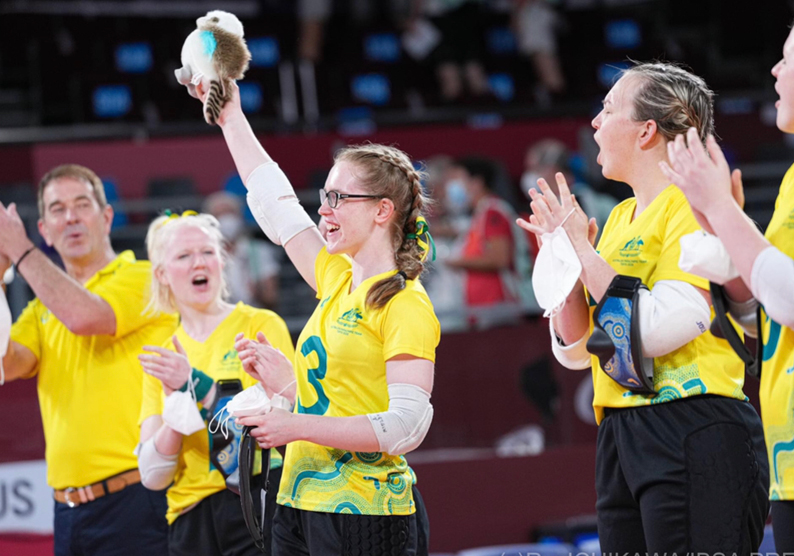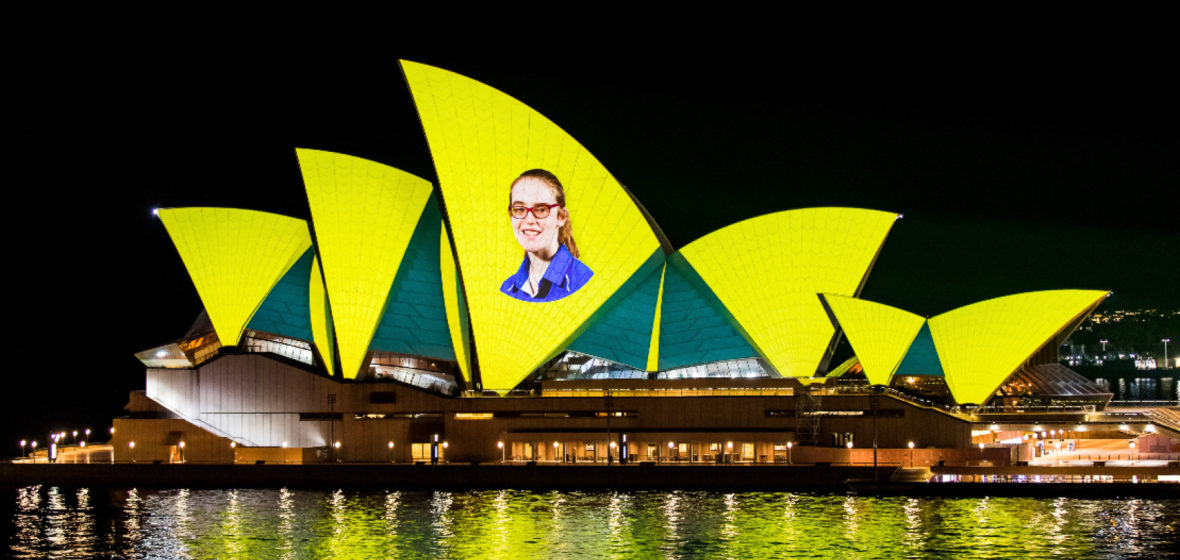Law student Amy Ridley helped the women’s goalball team reach a historic quarter final in her Paralympics debut in Tokyo this year.
Amy Ridley wasn’t planning to go to the Paralympics. The teenager, from Sydney’s Upper North Shore, represented Australia in the 2019 Goalball Youth World Championships and earned herself a place on the long list for Tokyo. With her HSC looming in 2020, however, she decided against trialling for the Olympic team.
“I’ve always been academic,” she says. “I’m the kind of person who will prioritise my studies over the Paralympics, but when it got pushed back due to COVID-, a spot opened up. I knew I had to take it.”
Her decision turned out to provide the best of both worlds. Ridley earned herself a scholarship to Macquarie University, where she’s studying a business/law double degree. She also made her Paralympic debut with the Aussie Belles in August, helping the team move past the group stage for the first time in history with a commanding 4-1 win over the reigning world champions, the Russian Paralympic Committee.
“That win, it’s something I think I’m going to remember forever,” she says. “That was huge.”
Men’s goalball became an official Paralympic event in 1976, but the women’s event has only been running since 1984. It’s a team sport played on an indoor court with a soccer-like goal at each end. The objective is to intercept the ball and roll it into the opposing goal. It’s played by people with varying degrees of vision impairment, so all players wear blackout masks and tune in to the sound of bells inside the ball to play.
Ridley says it’s an incredibly precise sport, requiring unwavering focus for two 12-minute halves.
“So few people knew what it [goalball] was before these Paralympics, but the broadcasting this year was the best we’ve ever had,” Ridley says.
“It’s been interesting. Hopefully that means we’ll get a lot of new people interested in trying it out. I love that it’s a fully inclusive sport. A lot of the sports that involve visually impaired people don’t require blindfolds. There’s a huge spectrum of people who are visually impaired – there’s a big difference between 10 per cent vision and nothing – so everyone is on the same page.”

Ridley picked up the sport in high school. She laughs as she recalls her first competition was “a bit of a flop”, but it was a learning experience. They went on to win the state championship three times. She turned heads, earning a place on the NSW squad and then the Youth World Championships team.
Learning to throw was one thing; learning to block was another. Ridley says a lot of it comes down to muscle memory, because it’s not just knowing where the ball is, but where and how it’s going to hit you.
“You have to practise it over and over again,” she says. “If you’re in the wrong place, or your arm is on the wrong angle, it could deflect and roll into the goal. It’s very psychological. The whole game is really about focus. As soon as it lapses, you lose the ball, and then it will be a goal for the other team.”
Ridley was born with full sight and diagnosed with an autoimmune disease called panuveitis when she was six years old. It’s a condition in which the body’s immune system attacks the cells of the eye, causing them to die. She was classified as legally blind when she was 10 and now has 2 per cent vision.
“It’s a lot more than most people would think,” she explains. “I can still see patterns, although they’re blurry. I can see shapes and people’s outlines, but not their faces. I can see the colour of their shirt. I use a cane to get around, so that’s my mobility tool, and I use screen readers, which help a lot.”
A bright student, she naturally gravitated towards mathematics and sciences, but school became more difficult as she advanced. Her screen reader couldn’t navigate complex equations, which meant she had to use braille.
“It’s a very slow medium,” she says. “You have to read letter by letter, or number by number, and you can’t scan ahead or speed it up. With the screen reader, it’s easy to read a lot. I can read up to four times as fast as normal speech. I don’t think I’d be doing what I’m doing without the technology.”

“I picked law not really knowing what I want to do moving forward, but I’m interested, on a broad level, in disability advocacy and I thought having a foundation in law would be helpful for that”
Ridley isn’t sure what the future will hold when it comes to work. People living with disabilities make up about 15 per cent of the population, but they face significant challenges when entering the workforce. A recent report from Ernst and Young, on behalf of Vision Australia, revealed that 49 per cent of recruiters had never considered hiring a person with blindness or low vision and only 30 per cent of employers were willing to make the reasonable adjustments necessary for people in this category to fill a role.
“I picked law not really knowing what I want to do moving forward,” she says. “But I’m interested, on a broad level, in disability advocacy and I thought having a foundation in law would be helpful for that.”
In the short term, however, her goals are very clearly defined. The Aussie Belles will be fighting to qualify for the 2022 Goalball World Championships in Hangzhou, China, then the Paris 2024 Paralympics.
“They’re amazing,” she says of the team. “They’re so dedicated, they have incredible skills. It was such a privilege to be able to play with them in Tokyo, and I’m excited to find out what we can do next.”




